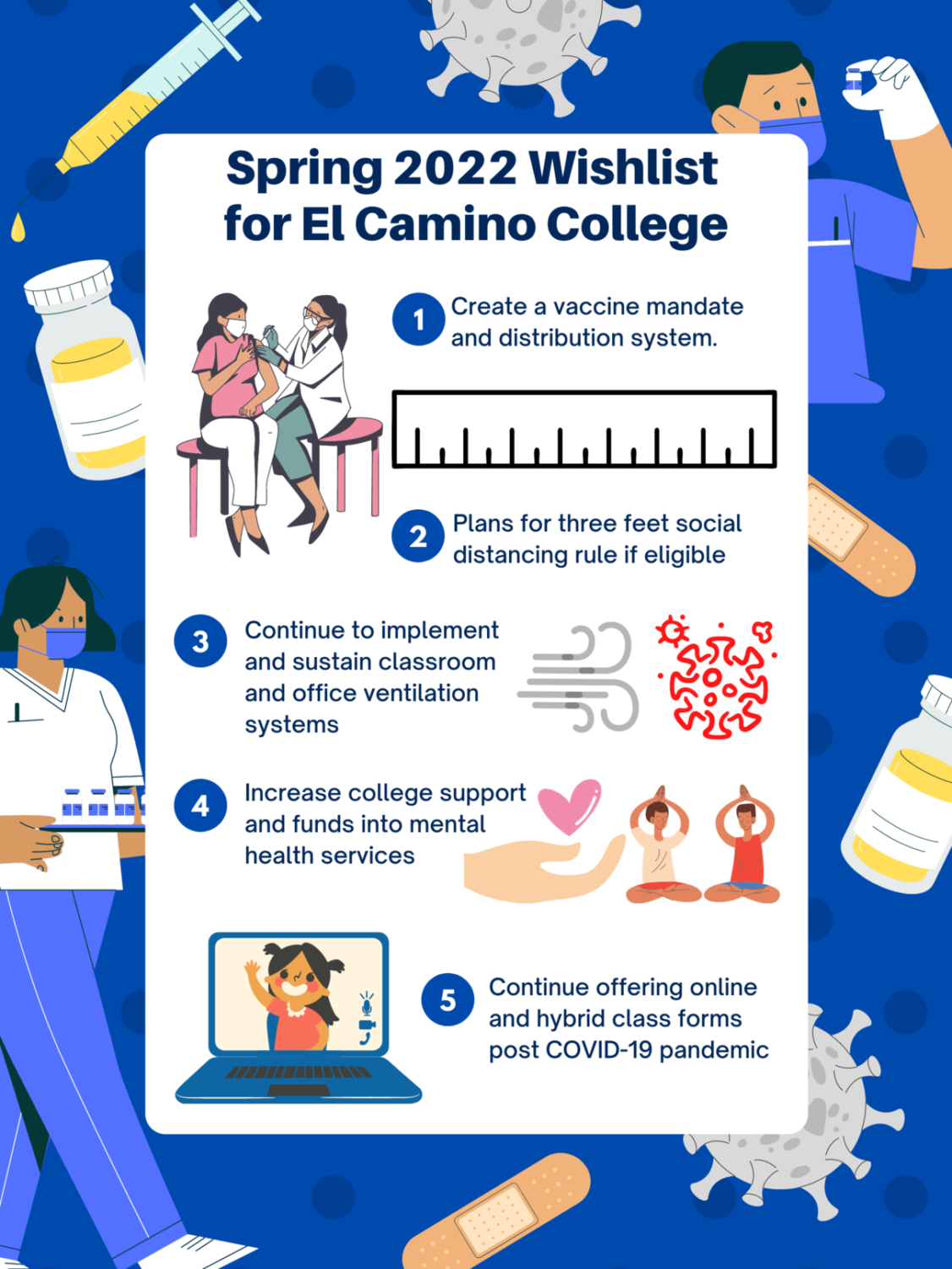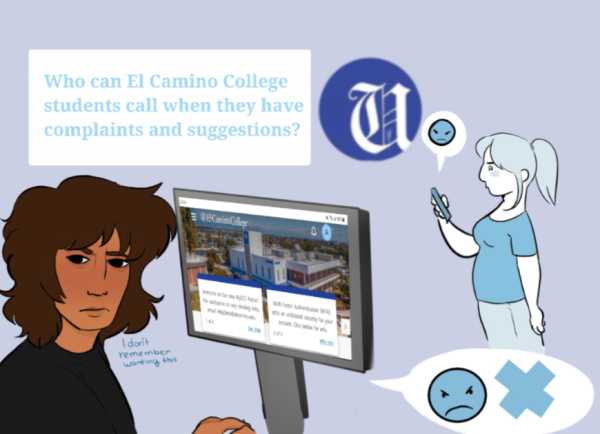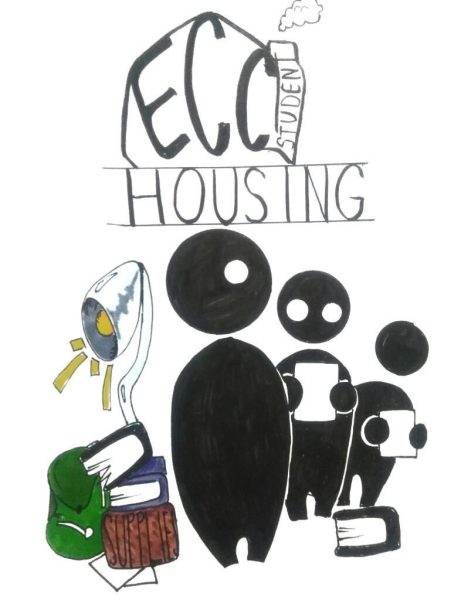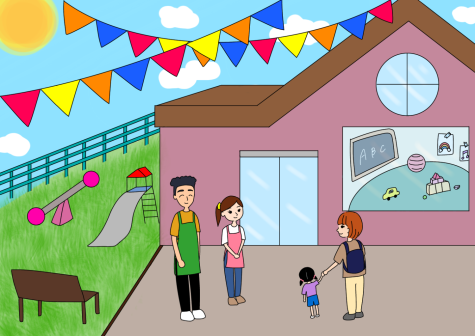What we wish to see on campus by spring 2022
As California continues to reopen, cases and deaths from COVID-19 continue to decrease and Californians continue to be vaccinated, it’s only a matter of time until El Camino College will allow students to come back onto campus.
While most classes at El Camino College (ECC) will be held online during fall 2021, the Editorial Board hopes that ECC can make the full transition back to in-person classes by spring 2022. With this in mind, there are a few things that we would like to see the college do in order to not only make sure that the in-person experience is safe for all students and staff that will be on campus, but will also help students as much as possible with their learning experience.
Vaccination mandate
One of the biggest things that ECC should focus on is a vaccine mandate and vaccine distributions. With the announcement of California State Universities and Universities of California intending to have a requirement for students and staff to be vaccinated in order to enter their campuses during the fall 2021 semester, this kind of implementation at ECC would help protect students and staff while on campus.
According to the Centers of Disease Control and Prevention (CDC), both the Pfizer-BioNTech and Moderna COVID-19 vaccines are 94% effective against COVID-19 after getting two doses of either vaccine. Although some will not get the vaccine due to being allergic to its ingredients or due to religious beliefs, having the mandate would lower the risk of students, faculty, staff or administration contracting coronavirus while on-campus.
Vaccines should also be made available to students on-campus as well in order to speed the vaccination process and provide more equitable vaccine access.
Stores such as CVS pharmacy, Rite Aid and Walgreens are providing Pfizer COVID-19 vaccines to individuals who book an appointment at their stores. A system such as this at ECC could not only speed up the process for students to get vaccinated, but would also allow more students the opportunity to be vaccinated when signing up for on-campus classes.
Three-foot social distancing when allowed
Throughout the pandemic, the universal rule for social distancing was six feet between each person, yet there have been some updates to the K-12 school social distancing guidelines. According to the CDC, elementary, middle and high schools are now recommended to have a three-foot social distancing rule for students in a classroom environment while wearing masks, regardless of their communities’ transmission rate.
While this rule should be applied to community colleges, 2021 ECC Presidential Candidate Santanu Bandyopadhyay said during his El Camino College Presidential Candidate forum, that if ECC is ever allowed to follow this three foot rule, a focus on student capacity and their safety will need to be prioritized.
ECC would need to see how specific classrooms and lecture rooms can accommodate a certain number of students safely. If the number of enrolled students in an in-person class is too high to accommodate the three-foot rule, the roster should be reduced in order to meet that need, that way students can have peace of mind when focusing on assignments and learning in class.
Ventilation and air safety
For a majority of classes held on-campus, they are held in an indoor setting. In order for students to feel comfortable in these indoor classes, proper ventilation techniques are needed in order to reduce the risk of infection. According to the CDC, the use of light wind is able to rapidly reduce the amount of airborne concentrations of the virus.
It was announced during the June 1 ECC Academic Senate meeting that the college has purchased 1,300 portable air purifier units with funds from the Higher Education Emergency Relief Fund (HEERF), which is part of the Coronavirus Aid, Relief, and Economic Security Act. Not only that, but the college’s Heat, Ventilation and Air Conditioning (HVAC) systems in 11 different buildings are going to be assessed and have their filters replaced on a quarterly basis.
The 11 buildings that will have these assessments are Life Sciences, Natural Sciences, Chemistry, Physics, the Planetarium, the Schauerman Library, LRC, Social Sciences, Humanities, MBAH and Communications buildings.
With this in mind, this is only half of the 22 listed buildings on the Key Tasks and Protocols portion of the COVID-19 Task Force’s Campus Reopening Safety Plan. The Union’s Editorial Board hopes that ECC will continue to add, maintain and replace HVAC systems around campus in accordance with assessments so that more classes are able to go back to their respective buildings and learn in-person.
Increased support of mental health services
Throughout the pandemic, feelings of anxiety and depression have gone up at alarming rates. According to the Kaiser Family Foundation, 56.2% of adults aged 18-24 have reported feeling symptoms of anxiety and or a depressive disorder during the COVID-19 pandemic (as of December 2020).
With a majority of surveyed adults having these symptoms, ECC should plan to help combat these problems with their students by putting more emphasis on mental health and student services.
According to the ECC budget for the 2020-2021 school year, the college had a proposed budget of $157,599 in mental health services, a $42 dollar increase from the 2019-2020 school year. Although there hasn’t been major increases in this budget, ECC is spending more on this health section than other community colleges in the area like Santa Monica College, who allocated $127,445 to mental health on their 2019-2020 budget.
With this in mind, El Camino should invest more into mental health programs, such as more staff for telehealth visits, as well as boost advertisement of such programs to let students know of these opportunities to make the first step to getting the help they need.
Online and hybrid classes
A focus on maintaining different student learning options should remain a focus for ECC, even once most students are back on-campus. Some students have shown interest in hybrid-style learning during the pandemic, in which these classes have some on-campus meetings, while having web based learning aspects through programs such as Canvas.
These kinds of classes have occurred in some subjects such as nursing throughout the pandemic. Classes with flexible hours that are currently happening at ECC should continue to be offered after the pandemic. The flexibility of hybrid classes can allow students to not only go onto campus at least once a week, but also gives students an opportunity to do assignments online and use online tools and content that can be accessed from home.
The Union’s Editorial Board is not suggesting that every class should start developing hybrid courses right away, as according to the University of Colorado Boulder, it would be difficult for professors to maintain both in-person and online learning styles initially and the Editorial Board recognizes that the College will need to evaluate learning objectives and methods of teaching to fit the hybrid learning style.
Hybrid classes allow students to access tools such as Canvas, Khan Academy, YouTube and other educational programs that broaden the range of knowledge students can obtain while working on the online portion of the class. Not only that, but when students start going back onto campus, they will have more of a human connection with professors and their peers, possibly allowing them to get more hands-on knowledge with certain subjects rather than looking solely at a screen.
With all of these items in mind, The Union’s Editorial Board believes that ECC will have the ability to not only create an environment that is safe for all to work and study in, but will also create opportunities for students to get the best care and learning experiences.














